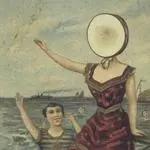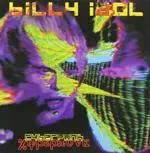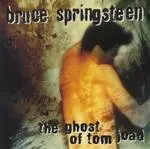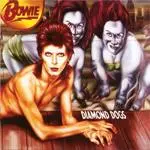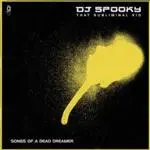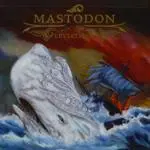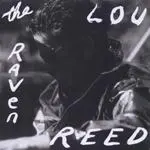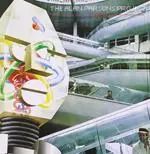Music fans are no doubt familiar with "concept albums," recordings by a given artist that offer a thematically-unified narrative told through lyrics and musical movements. For obvious reasons, these albums, which differ from more standard releases that simply collect unrelated songs, are often compared to novels. Sometimes, musicians take this literary connection quite literally, creating records that are conceptually hinged around books and literature, sometimes to great effect, other times, not so much.
Here are ten of these such albums for your reading and listening pleasure (or, in some cases, displeasure).
![]() 1. Neutral Milk Hotel — 'In the Aeroplane Over The Sea'
1. Neutral Milk Hotel — 'In the Aeroplane Over The Sea'
This much-beloved indie rock record from 1998 is loosely based on The Diary of a Young Girl, Anne Frank's account of her family's self-concealment in Nazi-occupied Holland during World War II. As Slate writer Taylor Clark notes:
"One day, [singer and songwriter Jeff] Mangum wandered into a bookstore and happened upon a copy of Anne Frank's [diary]. The book consumed him. After finishing it, he spent a few days crying over Frank's story...The songs and lyrics he started writing about Frank could be so nightmarish in vision that Mangum grew afraid of what was issuing from his brain: verses about 'pianos filled with flames' and eating 'tomatoes and radio wires.' At times, he seems possessed, singing on Aeroplane's title track, 'Anna's ghost all around / Hear her voice as it's rolling and ringing through me.'"
![]() 2. Billy Idol — 'Cyberpunk'
2. Billy Idol — 'Cyberpunk'
While this record was the pop rock punk's interpretation of Cyberpunk culture in general, it's primary source of inspiration was William Gibson's 1984 novel Neuromancer, from the overall visual aesthetic of the artwork to songs such as "Wasteland" and the tellingly-titled "Neuromancer," as well as a cover of The Velvet Underground's "Heroin" as a tie-in to the book's protagonist Chase and his various addictions. Unlike Neutral Milk Hotel's Jeff Mangum, who remained somewhat elusive about his inspiration, Idol was all about promoting Gibson and Neuromancer, though this did backfire on him. The author recounts a rather embarrassing moment for the rock star (via an interview with Marisa Golini for Ottawa radio station CKQB-FM):
"A London journalist told me when Billy did his 'Cyberpunk' press junket over there, he made it a condition of getting an interview with him, that every journalist had to have read 'Neuromancer'...Anyway, they all did but when they met with Billy, the first thing that became really apparent was that Billy hadn't read it. So they called him on it, and he said he didn't need to...he just absorbed it through a kinda osmosis...."
Oh Billy.
![]() 3. Bruce Springsteen — 'The Ghost of Tom Joad'
3. Bruce Springsteen — 'The Ghost of Tom Joad'
This 1995 release showed The Boss thoroughly separating himself from his Born in the U.S.A.-era mass-commercial appeal (despite a widespread misunderstanding of that album's critique of America). The E Street Band is not present here, with the majority of the tracks featuring just Springsteen and an acoustic guitar. And of course, as the title indicates, Tom Joad is loosely-based around John Steinbeck's seminal novel The Grapes of Wrath, as well as Journey to Nowhere: The Saga of the New Underclass by author Dale Maharidge and photographer Michael Williamson. While critically well-received, the album didn't fare well in the sales department—which, given Springsteen's anti-commercial, blue collar sentiments fueling the effort, means The Ghost of Tom Joad was, perversely, a big success.
![]() 4. David Bowie — 'Diamond Dogs'
4. David Bowie — 'Diamond Dogs'
With tracks like "1984" and "Big Brother," it's fairly obvious what literary source inspired this classic Bowie album. According to Wikipedia (via David Buckley's book Strange Fascination—David Bowie: The Definitive Story):
"Thematically, [Diamond Dogs] was a marriage of the novel Nineteen Eighty-Four by George Orwell and Bowie's own glam-tinged vision of a post-apocalyptic world. Bowie had wanted to make a theatrical production of Orwell's book and began writing material after completing sessions for his 1973 album Pin Ups, but the author's estate denied the rights. The songs wound up on the second half of Diamond Dogs instead..."
While we can always enjoy the music, it's a real shame we never got to see a fully-realized stage adaptation of Nineteen Eighty-Four as conceived by Bowie. It would have been a trip.
![]() 5. Poe — 'Haunted'
5. Poe — 'Haunted'
If you've been keeping up with LitReactor articles of late, then you've already read about this record, thanks to Bart Bishop's in-depth analysis of the relationship between this album and Mark Z. Danielweski's House of Leaves (and of course between Poe and the author, who are siblings). Bishop handles the material much better than I could, so definitely check his column out. As he notes, Haunted basically serves as a kind of soundtrack companion to the book, less a direct "adaptation," more something akin to In The Aeroplane Over The Sea, interweaving biographical elements with aspects of the book. Intriguing work from Poe, to be sure.
![]() 6. DJ Spooky — 'Songs of a Dead Dreamer'
6. DJ Spooky — 'Songs of a Dead Dreamer'
AllMusic reviewer Ned Ragget writes of this album:
"...Songs of a Dead Dreamer is more a consistent and total exploration of sound and atmosphere, as much indebted to the effect of film soundtracks as it is to getting a good groove and beat on..."
This description, if slightly altered, also fits DJ Spooky's source of inspiration, the short story collection of the same name by cosmic horror author Thomas Ligotti. There are indeed funky elements to the album, but overall Songs is primarily interested in chill and yet slightly unnerving soundscapes and ambience, with every track fading into the next for a more singular and cohesive listening experience. Likewise, Ligotti's Songs, while featuring monsters of both human and supernatural ilk, isn't concerned with typical horror tropes, but rather in creating a lingering atmosphere of dread. The stories function as stations in an ongoing, possibly never-ending nightmare. The album and the book thus make strange but effective bedfellows. See especially Spooky's haunted circus/outer space/Amazon jungle track "Juba."
![]() 7. Mastadon — 'Leviathan'
7. Mastadon — 'Leviathan'
Herman Melville's Moby Dick is not stuffy. Metal band Mastadon proves this in spades with Leviathan, an album partly based on the classic American novel. As Wade Kergan from AllMusic observes:
"The sound on Leviathan seems bottomless and infinite in the best possible way: it's not a dip in the pool; it's a headlong cliff dive into deep waters...Filtered through Melville's spyglass, the watery tales and creatures of Leviathan are even more paranoid and intense than the more terrestrial Remission [the band's previous album]."
But don't take Kergan's word for it. Have a listen for yourself. Also check out LitReactor's in depth breakdown of the album: White Whale, Holy Grail.
![]() 8. Lou Reed — 'The Raven'
8. Lou Reed — 'The Raven'
While not based on any one particular book or story, Lou Reed's concept album tackles the most famous works by Edgar Allan Poe, including the titular "Nevermore" squawker, as well as "The Conqueror Worm," "The Fall of the House of Usher," "The Tell-Tale Heart," and "The Pit and the Pendulum," just to name a few. Like other entries on this list, Reed intertwines personal biography into the life of Poe by reworking two of his most famous songs, "The Bed" and "Perfect Day," especially for this release. Accusations of pretentiousness have been thrown at The Raven, but one must view this record not as a Lou Reed rock album, but rather a theatrical production set to audio. With guest vocalists and narrators like David Bowie, Willem Dafoe, Steve Buscemi and Amanda Plummer, this consideration isn't hard.
![]() 9. The Alan Parsons Project — 'I Robot'
9. The Alan Parsons Project — 'I Robot'
You might think a prog rock band creating a spacey/funky concept record based on the works of Isaac Asimov would be corny-incarnate, but make no mistake: I Robot is not that STYX album with "Mr. Roboto" on it (also note: I kinda like "Mr. Roboto"). If the textured, mostly instrumental songs on this release aren't convincing enough of its merit, consider that band member Eric Woolfson actually spoke at length with Asimov about the album's conception, and the author was one hundred percent on-board with it.
Note too, APP also put out an Edgar Allan Poe concept album, Tales of Mystery and Imagination.
![]() 10. Pink Floyd — 'Animals'
10. Pink Floyd — 'Animals'
The second George Orwell-inspired album to make this list, Pink Floyd's 1977 Animals takes its cues from Animal Farm, the author's 1945 allegory about Stalinism. Roger Waters, David Gilmour and company apply Orwell's message to contemporary British society, making for a critique of the social and political climate at that time. The references to politicians are only thinly veiled, with "Pigs (Three Different Ones)"—which utilizes Orwell's categorization of swine as the top of the political tier—lambasting capitalists in general, future Prime Minister Margaret Thatcher, and conservative censorship advocate Mary Whitehouse. Generally speaking, Animals is one of the best examples of a band using literary allusion as a conceptual through-line to draw parallels between past and present—and in this case, it is an allegory based on an allegory.

About the author
Christopher Shultz writes plays and fiction. His works have appeared at The Inkwell Theatre's Playwrights' Night, and in Pseudopod, Unnerving Magazine, Apex Magazine, freeze frame flash fiction and Grievous Angel, among other places. He has also contributed columns on books and film at LitReactor, The Cinematropolis, and Tor.com. Christopher currently lives in Oklahoma City. More info at christophershultz.com
